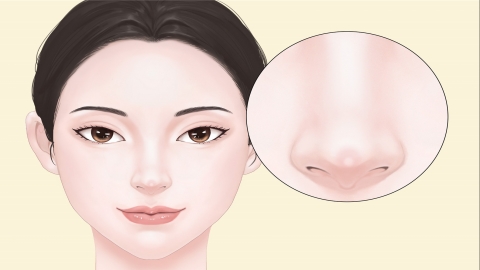What should I eat after rhinoplasty to help reduce swelling?
Generally speaking, rhinoplasty refers to nasal plastic surgery. After rhinoplasty, consuming foods such as chicken breast, kiwifruit, salmon, tofu, and watermelon may help reduce swelling. Additionally, medications like prednisone acetate tablets, cefuroxime axetil tablets, furosemide tablets, effervescent vitamin C tablets, and ibuprofen sustained-release capsules may be taken under medical guidance to help alleviate swelling. Detailed explanations are as follows:

I. Foods
1. Chicken Breast
Chicken breast is rich in high-quality protein, which serves as a fundamental component of human cells and tissues. After rhinoplasty, sufficient protein intake helps accelerate wound healing and repair damaged tissues, thus reducing swelling.
2. Kiwifruit
Kiwifruit contains high levels of vitamin C, an essential antioxidant that reduces inflammation and oxidative stress while promoting collagen synthesis. Collagen is a primary component of skin, bones, and connective tissues and helps improve skin elasticity, accelerate wound healing, and subsequently reduce swelling.
3. Salmon
Salmon is rich in Omega-3 fatty acids, which are important unsaturated fatty acids for human health. Omega-3 fatty acids have anti-inflammatory properties that reduce postoperative inflammation and thus help alleviate swelling.
4. Tofu
Tofu is a high-quality plant-based protein source that is easily digested and nutritionally rich. After rhinoplasty, moderate tofu consumption provides essential amino acids and nutrients to support the body's recovery and repair processes, helping to reduce swelling.
5. Watermelon
Watermelon is not only rich in water but also contains abundant minerals and vitamins. Its diuretic effect helps the body eliminate excess water and toxins, thereby reducing swelling. Moreover, antioxidants and vitamins in watermelon also help reduce inflammation and promote recovery.
II. Medications
1. Prednisone Acetate Tablets
Prednisone acetate tablets are corticosteroids with potent anti-inflammatory and antiallergic effects. They can rapidly reduce swelling and pain, but long-term use may cause side effects such as osteoporosis and weight gain.
2. Cefuroxime Axetil Tablets
Cefuroxime axetil tablets are antibiotics that kill or inhibit bacterial growth and reproduction. After rhinoplasty, they help prevent and treat infections, thereby indirectly promoting the reduction of swelling.
3. Furosemide Tablets
Furosemide tablets are diuretics that remove excess water and salt from the body by enhancing kidney excretion. After rhinoplasty, furosemide tablets help reduce swelling and edema in the surgical area.
4. Effervescent Vitamin C Tablets
Vitamin C is an important antioxidant that promotes collagen synthesis and reduces inflammation. After rhinoplasty, effervescent vitamin C tablets aid in accelerating wound healing and reducing swelling.
5. Ibuprofen Sustained-Release Capsules
Ibuprofen sustained-release capsules are nonsteroidal anti-inflammatory drugs (NSAIDs) that relieve pain and inflammation by inhibiting prostaglandin synthesis. After rhinoplasty, these capsules help reduce swelling and pain in the surgical area.
Maintain a balanced intake of nutrients in daily life, consume more foods rich in vitamins and proteins, enhance immune function, and promote postoperative recovery.





